About
Research Institutions & Centers
Advanced Research Centers
Pursue research in their respective research fields with a goal of becoming international research hubs attracting outstanding talents from the world. Nationwide joint-use institutes also conduct human exchange, information exchange, and joint research on a national scale beyond the bounds of universities and serve as research hubs for researchers and other relevant persons across-the-country in related fields.
International Institute for Integrative Sleep Medicine (IIIS)
Since its establishment in 2012 under the World Premier International Research Center Initiative (WPI) Program conducted by the Ministry of Education, Culture, Sports, Science and Technology (MEXT), International Institute for Integrative Sleep Medicine (IIIS) has continuously produced research breakthroughs that have attracted worldwide attention and is now recognized as a world-class research institute of sleep medicine. From 2022, as one of the Advanced Research Centers of the University of Tsukuba and a WPI Academy Center, IIIS further challenges the greatest remaining mystery in neuroscience, "sleep and hibernation" and contributes to our health and well-being through the elucidation of the pathology of sleep disorders, the development of new treatments, and the realization and application of synthetic hibernation.
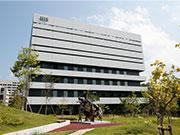
Center for Computational Sciences (CCS)
The mission of the CCS is the promotion of "Multidisciplinary Computational Science " through enhanced cooperation between, and the fusion of, computational and computer sciences. The CCS carries out R&D in high performance computing and networking systems, and applications for advanced sciences. The center was formerly the Center for Computational Physics (CCP) founded in April 1992; it has been reorganized and expanded with the addition of research areas for materials and life sciences, earth and bio environmental sciences, and computational informatics. The center is an inter-university facility open to researchers throughout Japan.
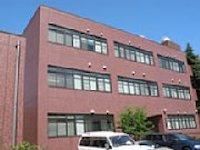
Life Science Center for Survival Dynamics, Tsukuba Advanced Research Alliance (TARA)
Our Research Center has been established to elucidate the fundamental mechanisms underlying survival, adaptation, symbiosis, and evolution of life. Each research project aims to promote cross-disciplinary collaborative research in the fields of experimental life science, such as metabolic biology, cardiology, reproductive biology, physiology and genetics, and structural biology, by utilizing integrated genomics and computational methods.
We will continue searching for potential survival strategies of living organisms under a dynamic research system in which medical science, biology, agriculture, pharmaceutical science, and health science collaborate.

Tsukuba-Plant Innovation Research Center
Taking advantage of being located in the Tsukuba Science City with its concentration of
industry, government, and university institutes, T-PIRC aims to develop highly functional and highly value-added
plants and vegetables and to accelerate the process of industrial applications. To achieve its goals, T-PIRC set
the following objectives: Promoting information sharing and gathering among industry, government, and university
and further developing cooperative research; putting research results to practical application in a seamless
manner in cooperation with industry; and improving function as an incubator to start a venture business.
Consisting of the following centers, divisions, and units, T-PIRC aims to expand its research capacity and
promote industrial applications.
- ? Gene Research Center(Japanese only)

- ? Next-Generation Agricultural Research Division(Japanese only)

- ? International Bioresource Research Division
- ? Data Analysis Division
- ? Collaborative Research Division
- ? Educational Partnership Unit
- ? Research and Education Support Unit
- ? Plant Transgenic Design (PTraD) Initiative(Japanese only)

- ? Master's Program in Agro-bioresources Science and Technology
- ? Doctoral Program in Agro-bioresources Science and Technology

Shimoda Marine Research Center
Shimoda Marine Research Center (SMRC), University of Tsukuba, located on the southern tip of the Izu Peninsula, is a facility for research and education on marine biology. The marine environment around here is diverse and rich in littoral fauna and flora, providing excellent resources for marine biology. Marine organisms have been providing unique systems in basic biology and contribute in recent life sciences. Now they are especially focused due to the environmental issues and biodiversity. We are doing research and education on marine organisms from molecular to ecological levels for the comprehensive understanding of life and the benefit of human society and environments.
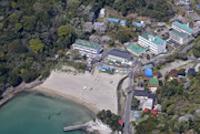
Plasma Research Center
The center carries out advanced research and education in plasma physics and its applications (especially, improvement of plasma confinement by electric potential/field, investigation and control of boundary plasma) using world-largest tandem mirror device "GAMMA 10" and development of related facilities. It promotes mutual research cooperation of plasma fusion science with universities and research institutes in Japan and abroad.
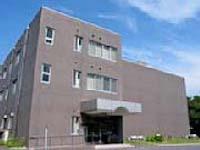
Alliance for Research on the Mediterranean and North Africa (ARENA)
With linking North Africa's unique and various potentials with Japan's advanced science and technology, the Alliance for Research on the Mediterranean and North Africa (ARENA) aims to enhance academic research on North Africa and Islamic cultural areas, and develop a new academic field of "North African Studies." ARENA's research fields include Bioscience, Environment and Energy, Humanities and Social Sciences, and ICT and Innovation. ARENA promotes interdisciplinary and comprehensive research on the area studies, with combining the four research fields. More details
Center for Cybernics Research
Center for Cybernics Research aims intends to contribute to the development of a new cutting-edge, multi-disciplinary field, known as "Cybernics," which is fusion of humans, robots and information systems. It aimed to create innovation and the emergence of a new industry through innovative cybernic technologies that can regenerate, improve, support and expand human's brain-neuro-physical functions and human capabilities, together with the larger goal of making this country's medical, nursing, and health care industry into the leading growth industry of Japan. Besides being a global leader in the field of human assistive technologies, the Center fosters world-class research and development personnel and works toward commercializing research achievements and returning them to society through industry-university-government cooperation. Through these activities, it strives to accomplish the mission of creating "Society 5.0" by the comprehensive organization, 'Center for Cybernics Research'.
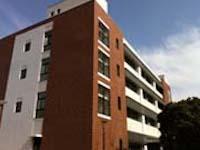
Center for Research in Radiation, Isotopes, and Earth System Sciences (CRiES)
On December 1, 2012, the Center for Research in Isotopes and Environmental Dynamics (CRiED) was established by integrating the Radioisotope Center and the Terrestrial Environment Center to improve the ability to investigate the long-term effects of radionuclides in the environment. The Center consists of the Radiation Management Division and the Research Division. The Radiation Management Division manages radioisotopes, radiation facilities and X-ray generators, and trains researchers in the use of radioisotopes. The Research Division conducts interdisciplinary research on the redistribution of radionuclides in forest ecosystems and hydrological systems. Subsequently, the Data Analysis for International Collaboration Section was added, which implemented data archiving projects for terrestrial and marine radioactive materials, including Fukushima. On April 1, 2023, CRiED was reorganized into the "Center for Research in Radiation, Isotopes, and Earth System Sciences (CRiES)" and new sections were added: Isotope Cosmochemistry and Geochemistry, Medicine for Radiation Effects, and Advanced Accelerator. By establishing a transdisciplinary database, we are aiming to lead international research on the environmental dynamics of radioactivity.
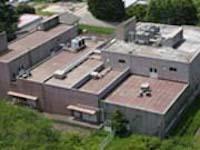
- ? Radioisotope Research Section

- Department of Radioisotope Research utilizes the facilities and previous accomplishments from a wide range of research regarding radioisotopes to develop simple but highly sensitive methods for measuring radiation, as well as new measurement methods under various environmental conditions. Additional objectives include performing fundamental research to practically apply these methods in analyses of physical properties, materials, functionality assessments, radioisotopes in environmental dynamics, and metabolic pathways.
- ? Terrestrial Isotope Transfer Processes Section

- Department of Environmental Radionuclide Transfer conducts the transfer of radionuclides diffused into the environment. Monitoring and modeling of water/sediment are carried out, particularly the transfer mechanism and comprehensive model of radionuclides attached to the forest and soil by using the world's best technique and technology in cooperation with IAEA, IRSN (France), and Plymouth University (UK).
- ? Environmental Dynamics & Prediction Section

- Department of Environmental Dynamics and Prediction aims to explain the transfer processes of radioactive substances on both regional and global scales through modeling, simulation, and measurement of material and water transfer in water and atmospheric environments.
- ?Tandem Accelerator Complex
Center for Artificial Intelligence Research
The Center for Artificial Intelligence Research (C-AIR) supports and organizes collaboration activities between AI research groups from different fields in the University. This center promotes the interdisciplinarity that is key to the University of Tsukuba's research vision. In this sense, this center works as a hub to mediate the cross-sectional network of fundamental AI research groups and Applied AI research projects within the University of Tsukuba, and also from industry collaborators.
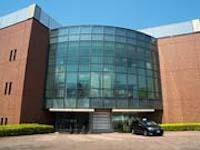
Microbiology Research Center for Sustainability (MiCS)
In light of the diverse global problems that humankind is facing today, the importance of microorganisms in the maintenance of life on Earth must not be overlooked. The Microbiology Research Center for Sustainability (MiCS) was founded to unite interdisciplinary fields with the central goal of promoting cutting-edge research to deepen our understanding of the microbial world. MiCS aims to contribute in establishing a sustainable society by harnessing the power of microorganisms through understanding and application and through cultivating the next generation of scientists through innovative research in microbiology.
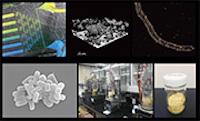
Advanced Research Initiative for Human High Performance (ARIHHP)
ARIHHP facilitates health and sport sciences of the next generation by applying
cutting-edge life and cognitive science research and advanced sports technologies.
We develop new programs for exercise, nutrition and relaxation (sleep), techniques and tools for sports, and
training methods for human high performance based on mind, technique, and body. We aim to contribute to society
as a whole, not only to athletes but also the general public.
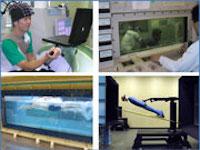
Proton Medical Research Center
Proton Medical Research Center (PMRC) is a world leading institution conducting not only cancer treatment, but also research in radiation oncology, radiation biology, and medical physics. The University of Tsukuba started basic and clinical studies of protons in 1983, and the present PMRC was constructed in 2000. Since then, thousands of cancer patients have been treated here. Also, advanced technologies have been developed for more precise treatment, and specific biological effects of protons have been clarified.
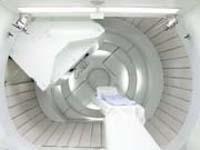
Research Center for West Asian Civilization
The Research Center for West Asian Civilization studies the history and civilization of West Asia and its surroundings from the ancient time to the present, revealing the complexity and essence of West Asian civilization through interdisciplinary collaborative research on archaeology, linguistics, history, earth science, cultural property science, anthropology, and city planning. The center comprises four departments: (1) Archaeology, (2) Linguistics and History, (3) Earth Science, and (4) Cultural Heritage and City Planning. Those departments collaborate to plan and implement overseas research, the preservation of the historical heritage, research and workshops, and education programs.
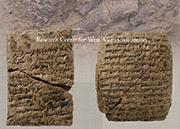
Tomonaga Center for the History of the Universe
The Tomonaga Center is to push forward the studies on the History of the Universe through interdisciplinary collaborations among particle physics, astrophysics, and nuclear physics. The name "Tomonaga" is from Sin-Itiro Tomonaga (1906-1979), a Nobel laureate in Physics for his basic contributions to the foundation of relativistic field theories and renormalization theories, and also a founder of physics institutes at Tsukuba.
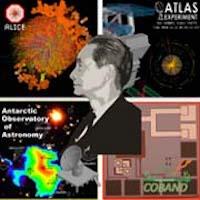
Tsukuba Research Center for Energy Materials Science
Laboratory of Advanced Research B / Laboratory for Entrepreneurship
/ Laboratory for Entrepreneurship
Tsukuba Research Center for Energy Materials Science (TREMS) aims to create innovative energy materials and
devices and to promote collaborative research. TREMS consists of three divisions and one research group,
Molecular Designing of Materials Division, Energy Materials Division, Electrical Energy Control Division and
Integrated Fundamental Science Research Group.
Mountain Science Center
The Mountain Science Center (MSC) was founded in April 2017 by merging the former Sugadaira Montane Research Center with the University Forests, thereby expanding to encompass research areas such as earth sciences, biological sciences, environmental sciences and forest science. The center aims to establish mountain science as a comprehensive science and contribute to the creation of a safe, secure and active mountain community through the cooperation of industry, government and academia. The center manages Sugadaira Research Station, as well as Yatsugatake, Ikawa and Tsukuba Experimental Forest Stations and provides these facilities for field research and education.
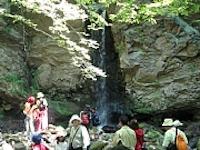
Transborder Medical Research Center
Transborder Medical Research Center is the first international research center of University of Tsukuba's, Faculty of Medicine. Transborder Medical Research Center is formed by carefully selecting specific strategic cores of world-class research know-how, from Medical and Life Science faculties.
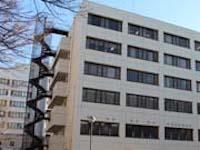
Center for Cyber Medicine Research
Research Support Centers
Develop research infrastructures and provide research support to engage in daily research sufficiently and without delay.
Academic Computing & Communications Center (ACCC)
The Center supports research and education performed in the University through management of the campus network system, the campus wide computer system, authentication system, provision of security and media services. Also, it conducts research and development towards an advanced utilization of ever evolving ICT for providing the campus information environment. Within ACCC, the Office of Educational Cloud has been organized to provide the e-learning management system, remote lecture delivery service, automatic lecture recording service and Open Courseware (OCW), implemented on the Office's own computational cloud infrastructure.
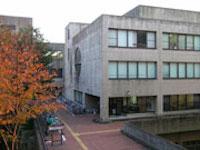
Research Facility Center for Science and Technology
The center manages four experimental facilities for scientific research and education, including tandem electrostatic accelerators, facilities for cryogenics, chemical analysis facilities, and engineering workshops.
- ?Cryogenic Division(Japanese only)
- ?Chemical Analysis Division
- ?Engineering Workshop Division
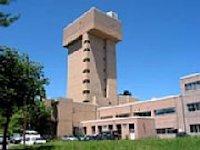
Education and Student Support Service Centers
Conduct education, etc. and specific tasks mainly for students and employees.
Center for Education of Global Communication (CEGLOC)
The CEGLOC provides both Japanese and overseas students with supportive environments in which to learn various languages including 网上哪里能买篮彩, German, French, Spanish, Russian, Chinese, Korean, and Japanese (either as a foreign language or the first language). The Center also manages the facilities and equipment required for that purpose and supports basic research programs contributing to the improvement of our language courses.
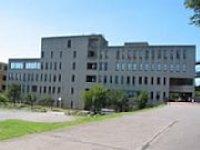
Sport and Physical Education Center
The center manages the university's sport and physical education facilities and training lodge and executes physical education and extracurricular educational activities for our students. It also conducts physical education activities sponsored by the university and guides measurement of physical fitness, health consultation and physical training for the university staff. These sport and physical education facilities open to the public to promote physical activities.
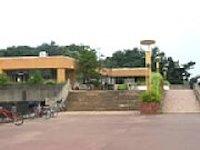
Admission Center
The center conducts Admission Center entrance examinations, the special type of examinations for research-oriented students, and performs surveys and research on the procedures of selecting students.
University Health Center 
The health center provides health examination, medical treatment, health consultations (in the domains of internal medicine, orthopedics, psychiatry, dentistry) and first-aid assistance to students and faculty. While contributing to the promotion of health after graduation and during employment, and to the prevention of health problems, it also provides psychiatric and mental health counseling for students. More details

Institute for International Science Innovation
Innovation Medical Research Institute

The University of Tsukuba Innovation Medical Research Institute was established in 2012 as part of the "Global Science and Innovation Development Project Utilizing Community Resources through Industry-University Partnership" project supported by the Ministry of Education, Culture, Sports, Science and Technology (MEXT). As a centre of innovation, the institute was jointly proposed by the University of Tsukuba and Keio University. The core function of the institute is to provide an inter-disciplinary and multi-functional space for innovative medical research by bringing together industry, academia and government under one roof. By leveraging on community resources, the institute aims to foster sustainable innovation, industry and employment.
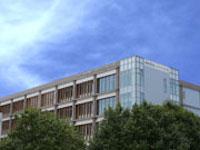
Institute for Joint Usage & Research
Tsukuba Clinical Research & Development Organization (T-CReDO)
T-CReDO was established in 2015 and supports the translational and clinical development of research results (seeds) on medical technology to get the regulatory approval for marketing. We also support the implementation of clinical trials to obtain clinically useful findings. We provide not only the education and training courses for the researchers and professionals involved in clinical research but also the entrepreneurship training programs to accelerate the creation of innovative pharmaceuticals and medical devices.
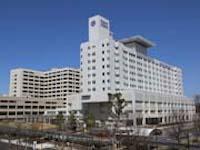
Research and Development Centers
R&D Center for Precision Medicine 
The Research and Development Center for Precision Medicine (PMC) was established as Japan's first omics analysis center aiming to develop a $1000 genome sequencing technology. Using state-of-the-art technologies in genome sequencing and mass spectrometry, the Center aims to provide analytic and translational approaches to provide precise diagnosis of cancers and various diseases in a data-driven/evidence-based approach.
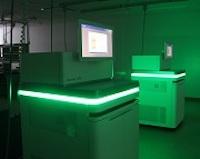
R&D Center for Frontiers of MIRAI in Policy and Technology
The R&D Center for Frontiers of MIRAI in Policy and Technology is an open laboratory center for full-scale industry-university-government cooperation, where research and social implementation that aim to develop the future social infrastructure of local society are promoted. By holding up Division of Policy and Planning Sciences as the core, we will provide specific policy recommendations and promote their social implementation, to solve the economic and social issues of local society by coordinating the interdisciplinary work of the University of Tsukuba, the advanced technologies of several groups of business entities, and the verification experiment of the municipality. Above all, from the perspective of the image of future local society, where people, society and nature co-exist, we will carry out the most intensive research on the next-generation automobile traffic technology service, to realize active life where all people are able to move without personal or regional differences. In addition, we, as the center of the research, will proactively foster collaboration among industries, universities, and regions.
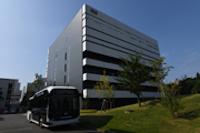
R&D Center for Sport Innovation 
With the establishment of the University of Tsukuba's (UT) Athletic Department (AD), the R&D Center for Sport Innovation (SIRC) has been engaged in practical research aimed at leading the way in university sports in Japan. Specifically, through an objective and continuous evaluation of changes in the well-being (health, safety and satisfaction) of student athletes, we are working to further promote not only the AD programs but also taking steps to enhance the educational support for students. SIRC will also promote various program development projects and joint research projects in collaboration with universities, local governments, and companies that together envision the revitalization of communities, societies, and universities through sports.

R&D Center for Health Services 
Health services research is a "multidisciplinary field of scientific investigation that studies how social factors, financing systems, organizational structures and processes, health technologies, and personal behaviors affect access to health care, the quality and cost of health care, and ultimately, our health and well-being." Health services research "seeks to improve the network for providing health care so that the fruits of biomedical research are readily available to all citizens". Our goal is to improve the quality of health services in Japan and in the world, through an interdisciplinary research approach. We use a variety of verified data for health services research, in collaboration with private and public health sectors. More details

R&D Center for Tailor-Made QOL 
R&D Center for Tailor-Made QOL has been established to disseminate an innovative 'Tailor-Made QOL Program' aimed at promoting health and preventing functional decline to people all over Japan and the world. Reducing the burden of health care cost has become an urgent issue; therefore, the national policy is shifting focus from 'treatment/care' to 'prevention and improvement'. It has become necessary to develop effective programs to improve the QOL and extend healthy life span that enable people to age with dignity, thereby overcoming the current situation where people remain bedridden for long periods of time at the end of their life. Not only will this lead to a significant reduction in medical expenses, but this will also change the image of the elderly people and contribute to the accumulation and utilization of human and intellectual capital in the society.
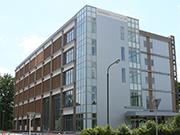
R&D Center for working Persons' Psychological Support 
Research & Development Center for Working Persons' Psychological Support was established on April 1,2019. The purpose is to provide a one-stop service for psychological support to working persons from both research and social contribution. We promote our activities based on the principle that "Pursuit lifelong development, with us." to support working persons, families and organizations that support those working persons. The center covers various areas of life-long development perspectives (transitions from school to work, middle-aged, elderly people, pregnant women, childbirth, childcare, nursing care, etc.), various areas of target (family, welfare, school, education, industry, society, etc.),and various areas of research (psycho-clinical, social behaviors, career development, mental health, disaster stress, addictions, etc.),and is characterized by it. We will promote practical research in line with social needs and will provide high quality psychological support services to working persons. In addition, it contributes to the qualitative improvement of psychological practitioners and human resources, and the training of leaders.
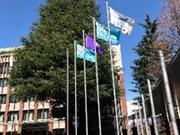
R&D Center for Innovative Material Characterization 
The world is making rapid progress with the aim of creating a sustainable society utilizing IoT and AI. Measurement and evaluation techniques are becoming increasingly important. In this center, we promote the research and development of new measurement and evaluation technologies by making full use of evaluation methods with light and electromagnetic waves, sound waves, electron and particle beams, nanoprobes, etc. and applying the technologies such as machine learning, deep learning, etc to them. Their application fields are generally classified into two fields: the material science field such as nanotechnologies including semiconductors, functional devices, etc. and the medical related field such as pathological diagnosis, drug discovery, etc. Measurement and evaluation technologies are indispensable to them and form the core of Japan's industry. Further development of those technologies bears the future of Japan.
Taking advantage of the accumulated expertise in Tsukuba, we will continue to strive toward achieving innovative material characterization with high accuracy and quality.
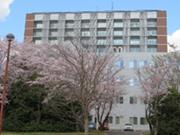
R&D Center for Innovative Drug Discovery 
In Japan, a super-aging society with a declining birthrate is advancing, and the disease structure is changing toward the increase in patients with chronic intractable diseases such as cancer, circulatory organs, locomotor organs, psychiatric nerves, metabolism, and immunity caused by lifestyle and aging. In such a situation, it is desired to create a society in which all people can live in a lively, healthy and secure manner at their respective life stages toward the age of 100 years of life. In recent years, there has been great interest and expectations for technological innovations that will support future medicine, such as regenerative medicine, genomic medicine, artificial intelligence, and the use of big data. In response to medical needs in a super-aging society, this center will promote basic research for further discovering and nurturing seeds and innovative drug discovery and diagnostic technology development for applying and implementing them in society.
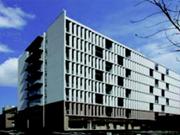
R&D Center for Digital Nature 
The recent developments in computational platforms for ubiquitous computing, Internet of Things (IoT), and cyber physical systems are enabling a ?new nature? ? the generation of artificial objects that are indistinguishable from the natural objects. For example, sound and light can be computationally manipulated to render realistic graphics (such as a butterfly) in mid-air or manufacture realistic object (such as material) using a printer. We describe such environment where the environment is restructured through the interaction of natural and computationally generated artificial objects, as the digital nature. Digital nature can be achieved through various methods such as digital fabrication method using 3D printer or through augmented reality (AR) / virtual reality (VR). The interaction of artificial object with the natural environment feeds back as data and will be utilized in a feedback loop to further infuse the artificial object into the natural world.
This R&D center researches the information media devices and co-creation environment with humans in such a feedback loop and develop building blocks towards social implementation of digital nature through the promotion of researches associated with digital nature. In addition, we will endeavor to develop novel media devices and its services via multidisciplinary collaboration with cultural, art and sports sectors.
R&D Center for Smart Wellness City Policies
The R&D Center for Smart Wellness City Policies promotes research on various issues caused by the super-aging society and proposes social policies that contribute to the creation of a city with a healthy and long-lived community. Another function of the center is to establish a training program for highly-skilled professionals who can facilitate these goals. In order to accumulate evidence and formulate policy for a smart wellness city (SWC) where elderly people can live safely and securely, it is necessary to carry out large-scale and interdisciplinary research encompassing the fusion of sports wellness science, medicine, urban engineering, and AI. In addition to disseminating evidence of sports wellness and the usefulness of sports for good health and the ideal urban environment, this center promotes policy and interdisciplinary research in collaboration with local governments and companies to further human resource development.
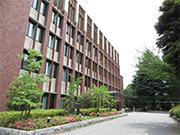
R&D Center for Lifestyle Innovation 
In recent years, more lifestyle transformation is required for various reasons, including environmental and energy issues, emerging and re-emerging infectious diseases, increasing health consciousness, and value changes.
The Research and Development Center for Lifestyle Innovation was officially established at the University of Tsukuba for exploring lifestyle for health and well-being for the future.
Through basic research, applied research, and social implementation, we aim to create better lifestyles based on scientific evidence. In addition to the interdisciplinary and international nature that is characteristic of the University of Tsukuba, where researchers from inside and outside the university gather from various fields, we will build a system of collaboration and cooperation among multiple companies that conduct joint research to create new value. We will regularly communicate the results of these efforts to society so that as many people as possible will become aware of them.
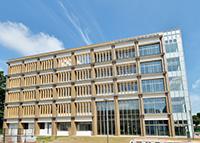
R&D Center for Zero CO2 Emission with Functional Materials 
Currently, with global warming, carbon neutrality (zero carbon dioxide emission) is required on a global scale. Hydrogen can be produced from water, and fuel cells using hydrogen produce only water as a product without emitting carbon dioxide in the chemical reaction during power generation, so they are the main energy carriers of renewable energy. Hydrogen is thus an important molecule responsible for its sustainable zero-carbon society. In the R&D Center for Zero CO2 Emission with Functional Materials、 we will promote the development and research of basic important technologies related to hydrogen production, storage and transportation, and green innovation basic technologies that convert carbon dioxide into useful materials such as methanol and formic acid and fuels.
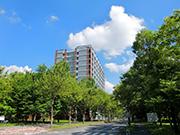
Other Institutions
Acupuncture and Physical Therapy Teacher Training School 
It is the only school for physical therapy teacher training designated by the Ministry of Education, Culture, Sports, Science and Technology in Japan. This "Physical Therapy", means a part of oriental medical therapies including acupuncture, moxibustion, "ANMA" massage (Japanese traditional massage) and "SIATSU" (finger pressure therapy). The mission is to train teachers of the physical therapy in charge of the vocational course of the school for the visually impaired, and to conduct basic and clinical research on the physical therapy. The school also provides acupuncture massage treatment for general outpatients, contributing to better health of local residents and providing an opportunity for students to learn the therapy. More details
Center for Counseling and Rehabilitation Services (Tsukuba Campus)
The Center provides people of various ages, including infants, school children, adults, and the elderly with professional counseling services concerning psychological or mental disorders, and strives to help them and their families address their problems. In addition, the Center is a place for conducting research on practical psychology and psychosomatic disorder as well as training professionals in this field.
Center for Counseling and Development Support Services (Tokyo Campus)
It's an educational counseling center for infants, pupils, students, and adults with a psychological or a developmental problem. The Center will provide support to help them overcome their problems. In addition, the Center is a place for conducting researches on clinical psychology and special needs education. Students of the Laboratory Schools of the University of Tsukuba have priority use of the Center.
Center for Research on International Cooperation in Educational Development (CRICED)
The center carries out researches on the educational development in the field of school education for better quality and inclusive education based on Japanese Education Models. As the core center on APEC and ASEAN (SEAMEO), it leads educational development in regions, and contributes to the other countries in UNESCO. It has offices in Tokyo Campus, Khon Kaen University in Thailand as well as offices in Tsukuba.
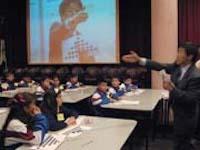
Institute for Comparative Research in Human and Social Sciences (ICR)
The Institute for Comparative Research in Human and Social Sciences (ICR) aims to promote Japan's leadership in advancing academic research in the humanities and social sciences through tackling issues of global significance and contributing to stabilize the current fault lines between civilizations. For example, our researchers are analyzing the reconstruction efforts from the earthquake disaster, internet society problems and security issues but also are searching for cutting-edge discoveries into philosophy and archaeology. We emphasize accumulating the highest achievements in the fields of humanities and social sciences and endeavor in increasing our global visibility. The ICR collaborates with the top experts through domestic and international alliances and is developing global academic synergy in the field of human and social sciences.



